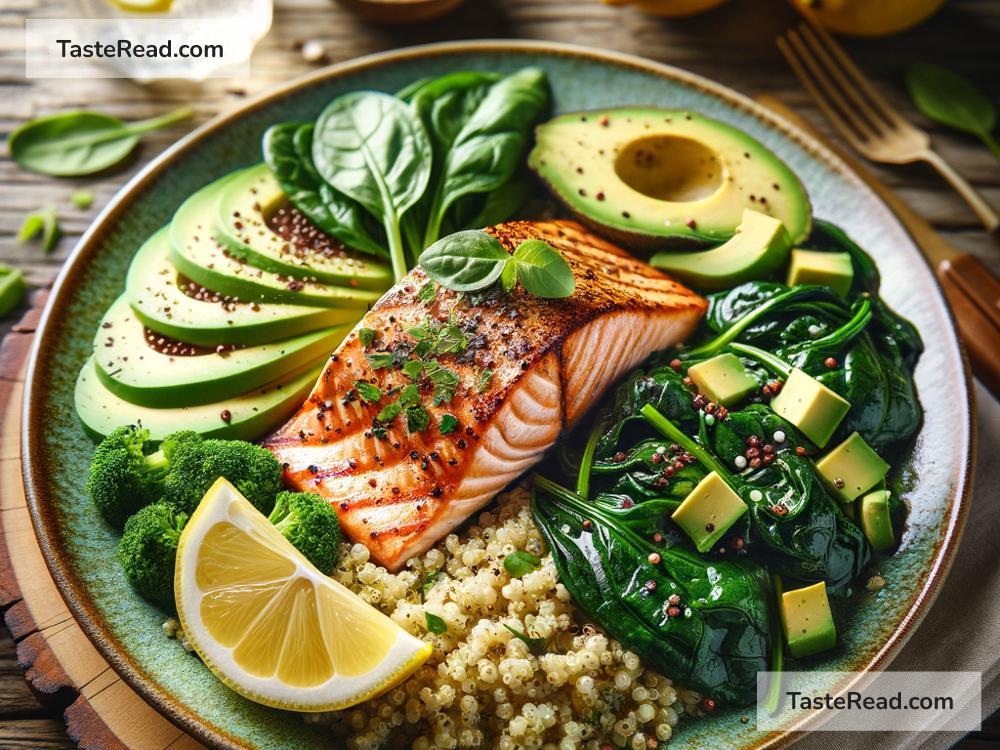The Benefits of a Balanced Diet for Respiratory Health: Supporting Pulmonary Function
Your lungs are hard at work all day, helping you breathe in oxygen and breathe out carbon dioxide. But did you know that what you eat can affect how well your lungs work? A balanced diet provides your body with the nutrients it needs to keep you healthy—and that includes the health of your respiratory system.
In this blog post, we’ll explore how a balanced diet can support your lungs and improve respiratory health. Let’s break it down into simple, easy-to-understand steps.
What is a Balanced Diet?
Before diving into lung health, let’s first define a balanced diet. A balanced diet includes:
- Fruits and Vegetables: Rich in vitamins, minerals, and antioxidants.
- Whole Grains: Such as brown rice, oats, and whole wheat bread, which provide fiber and energy.
- Healthy Fats: From nuts, seeds, avocado, and fish.
- Lean Proteins: Such as chicken, turkey, tofu, fish, and beans.
- Plenty of Water: Staying hydrated is just as important as eating the right foods.
A balanced diet avoids heavy amounts of processed foods, sugary drinks, and unhealthy fats that can harm your overall and lung health. By choosing nutrient-dense foods, you give your lungs the tools they need to thrive.
How Does Diet Impact Lung Health?
Your respiratory system relies on nutrients to fight off inflammation and harmful toxins in the air. Certain foods and nutrients can reduce inflammation, boost your immune system, and even improve the flow of oxygen in your body. For people with breathing issues, such as asthma or chronic obstructive pulmonary disease (COPD), a good diet can make a big difference.
Key Nutrients for Respiratory Health
Some nutrients are especially helpful for your lungs. Here are the top ones to include in your diet:
1. Antioxidants: Protect Your Lungs
Antioxidants fight harmful molecules called free radicals, which can damage lung tissue. Free radicals often come from pollution, cigarette smoke, or other environmental toxins. Here’s how antioxidants help:
- Vitamin C: Found in oranges, strawberries, bell peppers, and tomatoes, vitamin C can strengthen your immune system and reduce lung inflammation.
- Vitamin E: Found in nuts, seeds, and leafy green vegetables, vitamin E protects your lungs from oxidative stress.
- Beta-Carotene: This antioxidant, found in carrots, sweet potatoes, and spinach, turns into vitamin A in your body and supports strong lung tissue.
2. Omega-3 Fatty Acids: Fight Inflammation
Foods rich in omega-3 fatty acids, such as salmon, mackerel, flaxseeds, and walnuts, are great for reducing inflammation in the body. Inflammation can worsen lung conditions like asthma, so eating omega-3s can help your lungs stay calm and healthy.
3. Magnesium: Improve Breathing
Magnesium plays a role in relaxing the muscles around your airways, making breathing easier. Foods with magnesium include almonds, spinach, black beans, and avocados.
4. Vitamin D: Strengthen Your Lungs
Vitamin D helps your immune system fight infections and supports lung health. Studies suggest that people with low vitamin D levels may be more likely to experience breathing problems. You can get vitamin D from sunlight, fortified foods (such as milk and cereals), and fatty fish like salmon.
5. Fiber: Clean and Clear Respiratory Pathways
Fiber, found in whole grains, fruits, and vegetables, can improve overall lung health by reducing inflammation. It also supports gut health, which is connected to your immune system and respiratory health.
Foods to Avoid for Better Lungs
Just as some foods help your respiratory system, others can harm it. Avoid these foods whenever possible:
- Processed Foods: High-sodium packaged snacks and frozen meals can lead to fluid retention, which can make breathing harder.
- Sugary Drinks and Desserts: Excess sugar can increase inflammation in the body.
- Artificial Additives: Chemicals used in processed foods can irritate your airways.
Drink Water for Hydrated Lungs
Hydration plays a big role in respiratory health. Staying well-hydrated keeps the mucus in your airways thin, making it easier to breathe and clear toxins. Try to drink at least 6–8 glasses of water daily, and more if you’re active.
Benefits of Eating Well for Your Lungs
Here’s what you might notice if you prioritize a balanced diet for your respiratory health:
- Improved Breathing: Foods high in antioxidants and omega-3s can help reduce inflammation, making breathing easier.
- Better Immunity: Proper nutrition boosts your immune system, helping your lungs defend against infections like colds and pneumonia.
- More Energy: When your lungs work efficiently, oxygen is delivered throughout your body, and you feel more energized.
- Reduced Risk of Lung Diseases: A good diet lowers your risk of chronic respiratory issues, such as asthma or COPD.
Final Thoughts
Your lungs work tirelessly to keep you alive. Supporting their health with a balanced diet is a simple and effective way to feel better every day. By eating more antioxidant-rich fruits, omega-3 fatty acid-packed fish, and whole grains, you’ll give your lungs the nutrients they need to stay strong and healthy. Pair your good diet with staying hydrated and avoiding processed foods to get the best results.
Remember: Every breath you take matters, and a balanced diet can make each one easier!


